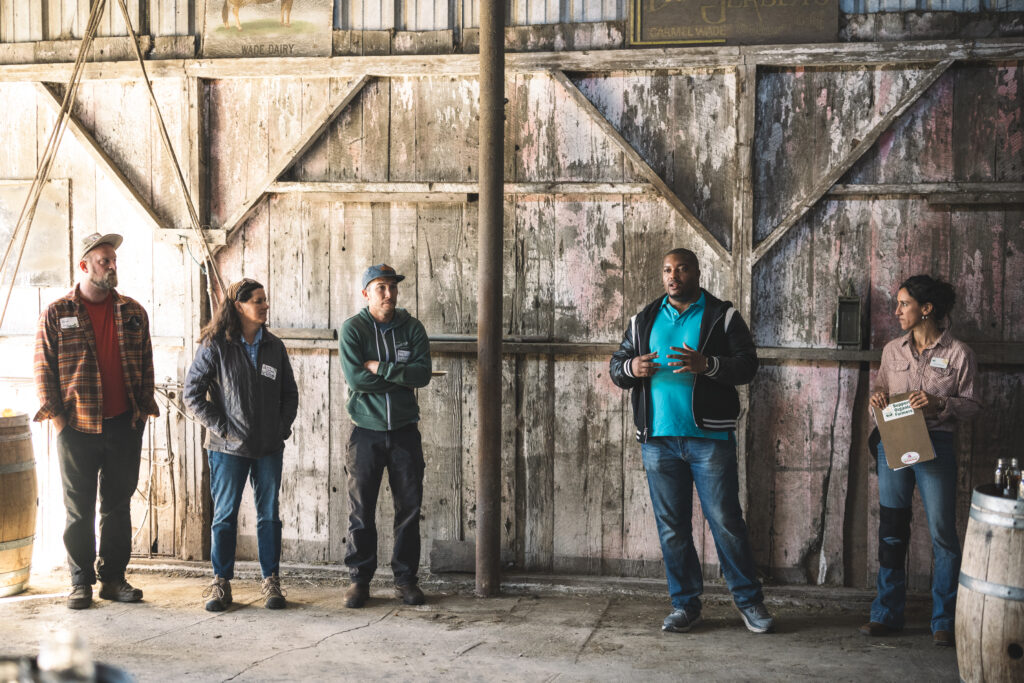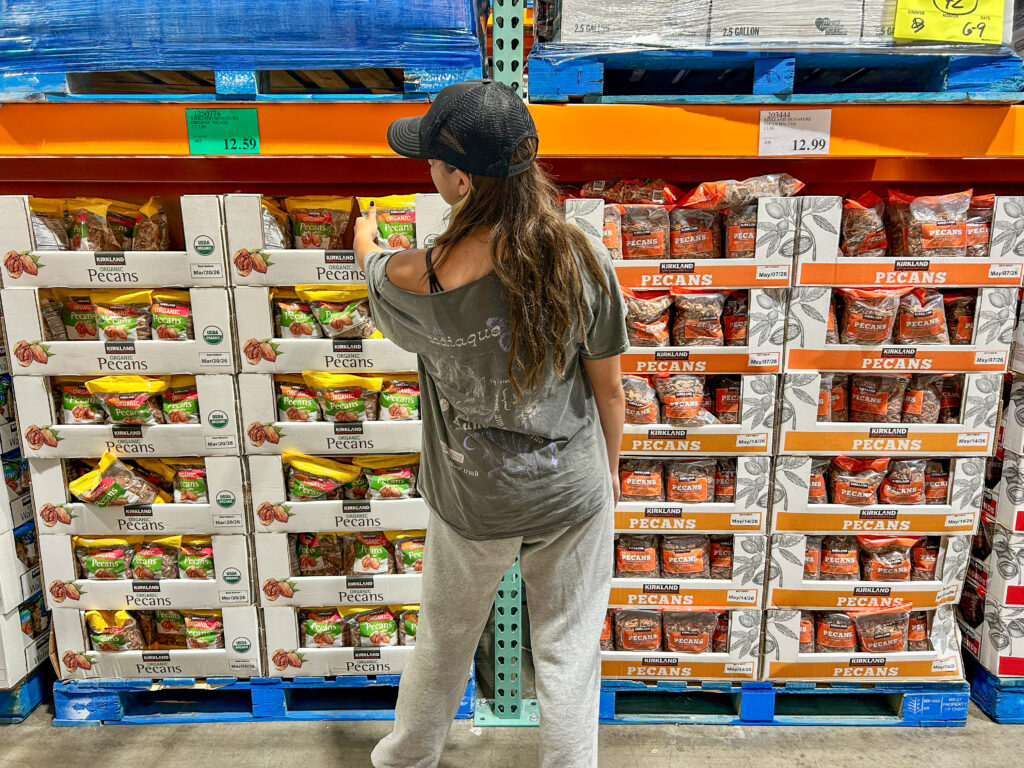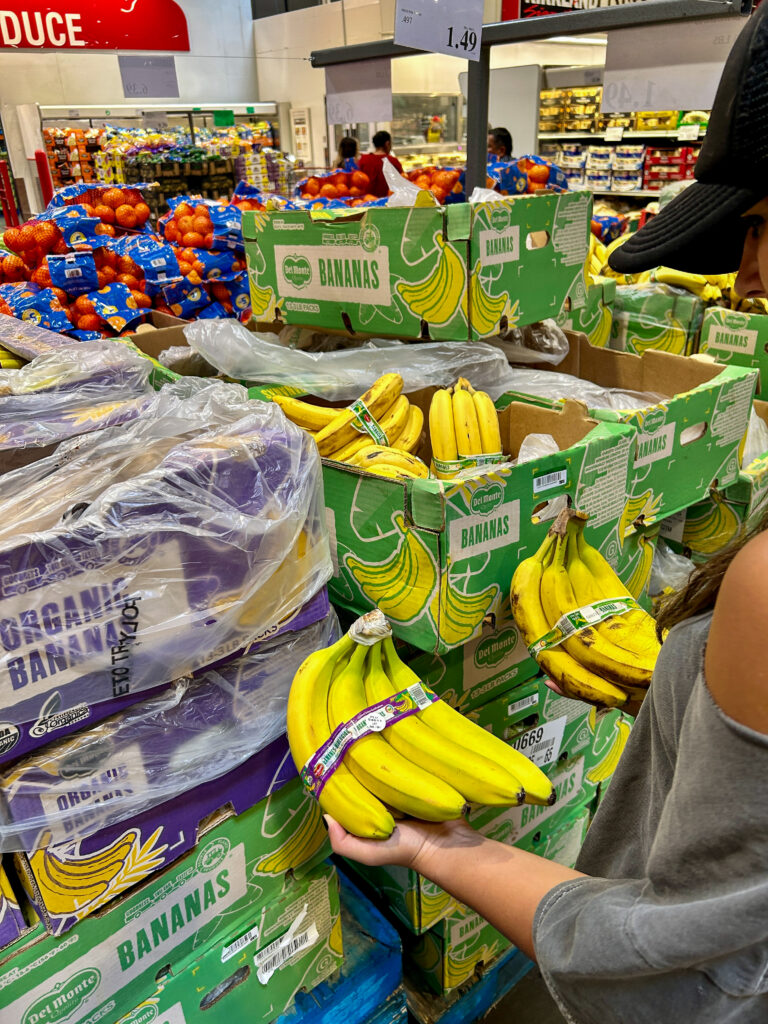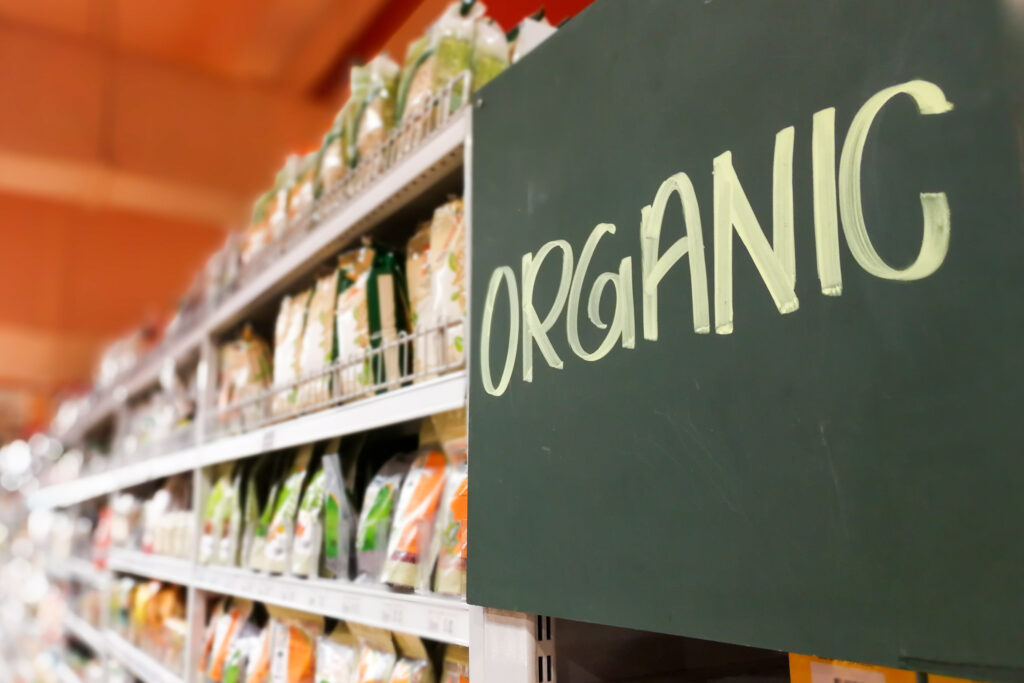Organic is a Guarantee
Your food choices have a lasting effect on your family and shape their eating habits, but shopping can be challenging when we’re all bombarded with food labels with often misleading claims. How can we know what to trust?
Unlike labels like “all natural,” Certified Organic is guaranteed by the USDA to be free of sewage sludge, bioengineering (GMOs), ionizing radiation, and most synthetic pesticides and fertilizers.
National organic standards also include regulations for organic processed products, including prohibiting artificial preservatives, flavors, and dyes.
For Health
Studies show that organically grown food has higher amounts of Vitamin C, magnesium, phosphorous, and iron. Organic milk contains far more omega-3 fatty acids than conventional milk.
Certified organic agricultural operations (certified organic farmers) avoid the use of most synthetic pesticides found in conventional agriculture. Chemical pesticides and herbicides have been linked to birth defects, obesity, diabetes, ADHD, and other health problems.
Organic meat, poultry, eggs, and dairy products come from animals that have been given no antibiotics or growth hormones. Synthetic hormones have been linked to premature reproductive development in human females and health problems in livestock.
Each time you choose organic, you are choosing to leave these chemicals off your plate.
Non-GMO & More
The use of Genetically Modified Organisms (GMOs) is prohibited in organic production, and organic production supports a food system that values natural resources, public health, animal welfare, transparent labels, and traceability of products without the use of toxic fertilizers or pesticides.
Organic is Food for Little Fingers
All parents are concerned about the health and wellbeing of their family. Children are more vulnerable to exposure to pesticides and herbicides, their bodies absorb toxins more readily than adults do, and their organs are less efficient at clearing those toxins.
Choosing to feed your family organic food reduces your risk of exposure to pesticides, GMOs, antibiotics, and hormones. It provides more nutrients and vitamins for little bodies to grow strong.







